Another Baha’i Buried Secretly By Iranian Intelligence Agents
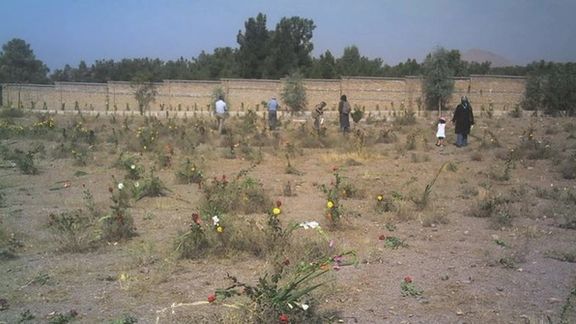
Iran’s ministry of intelligence has secretly buried another deceased Baha'i citizen without notifying the family or allowing a religious ceremony.

Iran’s ministry of intelligence has secretly buried another deceased Baha'i citizen without notifying the family or allowing a religious ceremony.
Human right groups reported on Saturday that the regime buried the Baha’i citizen without the consent of his family.
Based on the report, the relatives held the funeral ceremony behind closed doors on Friday.
Within the past months, activists of the Baha'i community and human rights organizations have repeatedly reported that Iranian government officials have buried some of the deceased in the Khavaran cemetery without the knowledge of their families.
The Khavaran cemetery in southeast Tehran is an unmarked mass graveyard where dozens of executed prisoners in the 1980s are buried.
Earlier, Iran Human Rights Organization quoted an informed source as saying that some people who are not from the Baha'i community are interfering in their religious practices.
Baha'i cemeteries in Iranian cities and villages have also been confiscated and destroyed, and new buildings have been constructed on the burial grounds to leave no traces of the remains of Baha'is.
The 1979 constitution of the Islamic Republic recognizes only Islam, Christianity, Judaism and Zoroastrianism. Supreme Leader Ali Khamenei has on several occasions called the Baha'i faith a cult and in a religious fatwa in 2018 forbade contact, including business dealings, with followers of the faith.
Baha'is, who number around 300,000 in Iran, say their rights are systematically violated and they are often harassed, forced to leave their homes and businesses, and are deprived of government jobs and university education.
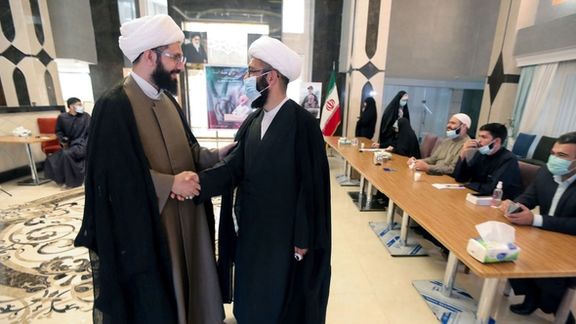
Some Iranian politicians are concerned that ultraconservatives who hold the majority in parliament might change the electoral law to serve their own interests.
Critics ae mainly concerned about the lack of transparency about an amendment the current law kept under wraps. However, lawmakers with access to the text of the bill charge that the amendment will restrict reformists, moderates and independent candidates in the upcoming parliamentary elections planned for March 2024.
A May 31 report published by Khabar Online website quoted MP Abdollah Izadpanah as having said that the new law will give the Guardian Council a free hand to disqualify non-conservative candidates.
The Islamic Republic has always banned non-insiders from running in elections but since 2020, the Guardian Council with the constitutional power to review candidates, has banned even former senior officials from running for parliament and the presidency. The council’s heavy-handed intervention in early 2020, handed the majority in the legislature to hardliners.
Izadpanah confirmed that based on the new law the Guardian Council may even disqualify candidates after they win an election. On the other hand, he said that the new bill introduces the concept of proportional elections for Tehran.
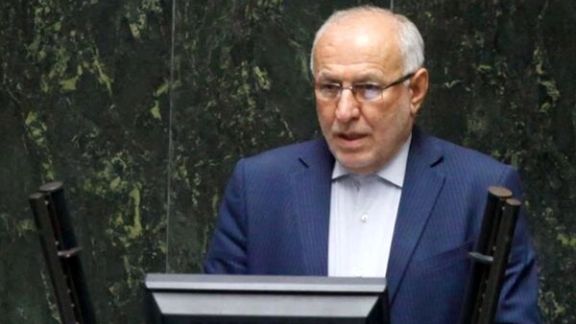
While currently the winning party list takes all the 30 parliamentary seats in the capital, the new law would divide the seats according to the percentage of votes each group receives. So, instead of the winner taking all, it takes as many seats as the percentage of votes it wins.
Some critics believe that this might even benefit candidates other than the conservatives. However, this will not make a big difference if all of the candidates and lists come from the same hardliner political faction, as it was the case in the previous election in 2020.
Ahmad Alirezabeigi, the lawmaker from Tabriz, also agreed that trying to restrict the voters' choice to ultraconservative candidates is the biggest shortcoming of this bill.
Another problem is that those with a pending legal case at the Judiciary may not be allowed to run for the parliament according to the bill. This opens the door to fabricating cases against some candidates, or some pending cases may be left inconclusive at the courts only to deprive some individuals from the right to run for the Majles.
Iran Judiciary, which controls both prosecutors and courts is a close ally of Supreme Leader Ali Khamenei’s hardliner loyalists.

Alirezabeiogi also disagreed with the part of the draft bill that allows the conservative-dominated Guardian Council to disqualify candidates who have won the election. Factional interests may be involved in such decisions, some members of the parliament have charged. Others say this will make voting and elections meaningless as a few members of the Guardian Council can effectively change elections result.
Reformist political activist Gholamali Rajaei charged in an interview with Nameh News website that some state officials and politicians are after a low-turnout election to ensure a victory by the ultraconservatives. These officials and politicians believe that a few percent of the total number of eligible voters in Iran are enough for the election and that there is no need for a majority of eligible voters to take part.
However, according to Nameh News website in Tehran, the main problem is whether Iranians can be persuaded to go to the ballot boxes again after two engineered elections in 2020 and 2021.
Rajaei also argued that a public deeply unhappy about the economic mess might boycott an election it has no faith in.
Rajaei also suggested that releasing political prisoners will also encourage political participation.
An earlier report by Iran International indicated that none of the country's political factions can do anything to ensure a high turnout in the upcoming parliamentary elections, and if the people do not feel it is a free election, they will not take part.
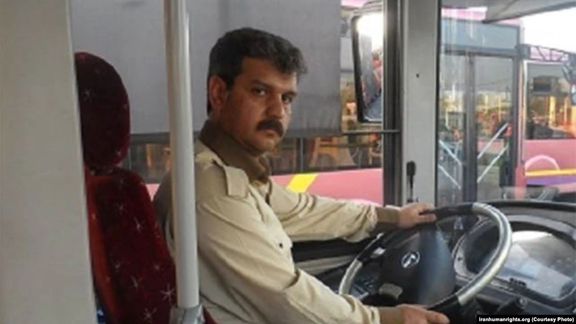
Iranian trade unionist Reza Shahabi has warned in a letter from Tehran's Evin prison about increasing government pressure on protesting workers.
“Since its establishment, the Islamic Republic has drawn daggers against the workers,” said Shahabi in the letter published on social media.
Shahabi, a member of the Workers Syndicate of Tehran and Suburbs Bus Company (Sherkat-e Vahed), was arrested following a strike and protests by Tehran bus drivers last year.
He was arrested May 12, 2022 as Tehran’s bus drivers began a strike over unpaid wages, creating chaos across the city with security forces in the streets and the government wary of possible protests over rising food prices.
Addressing the International Labor Organization, he stated in his letter that since its establishment, the Islamic Republic has tried to replace the labor councils, trade unions and independent labor organizations with state organizations whose members are appointed by the regime.
“These organizations all operate under the supervision of the regime and act like secret police in factories and workshops and do not allow the workers to protest. They identify the protesting workers and report them to the security forces or the management.”
In the end, this labor activist urged ILO members to "pay attention to the request of the oppressed workers of Iran, who are just trying to survive in unequal conditions with minimum resources."
Shahabi also confirmed that a new security case has been filed against him, as well as Keyvan Mohtadi and Hassan Saeedi to mount pressure on labor activists.
In 2012, Shahabi was jailed for seven years on security charges - "assembly and collusion against state security" and "spreading propaganda against the system – two years after he was first imprisoned.

US Secretary of State Antony Blinken will visit Saudi Arabia next week, amid Riyadh’s shifting foreign policy drawing closer to Beijing and a détente with Iran.
While the US was making the announcement, Saudi Arabia’s foreign minister Faisal bin Farhan met with his Iranian counterpart Hossein Amir-Abdollahian in South Africa during the BRICS summit and pledged to visit Tehran soon.
Blinken’s visit will be the second high-level mission in one month to mend fences with the region’s ascending power and the dealmaker in OPEC+. In May, national security adviser Jake Sullivan also visited the kingdom.
Although no breakthroughs are expected, Reuters quoted analysts as saying that the aims of the trip include to regain some sway with Riyadh over oil prices, to fend off Chinese and Russian influence, and to nurture hopes for an eventual Saudi-Israeli normalization.
In a brief statement, the State Department said Blinken would visit Tuesday to Thursday to discuss economic and security cooperation as well as for a US-Gulf Cooperation Council meeting and a conference on combating Islamic State militants.
But the Saudi decision in March to re-establish diplomatic relations with Iran after seven years of bitter animosity, signaled a serious shift in Riyadh’s foreign policy especially that the deal was forged with Chinese mediation in Beijing.
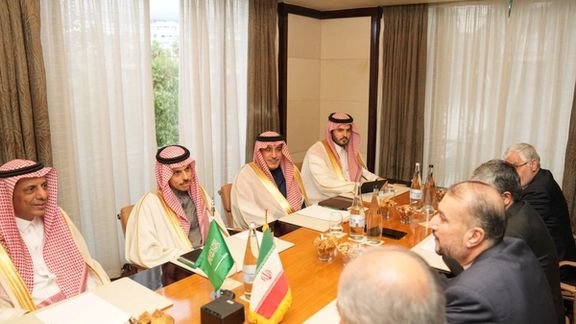
Other regional developments followed that further demonstrated a shift by Saudi Arabia, which feels it is in a position to act independently. Riyadh helped re-habilitate Syria’s dictator Bashar al-Assad among Arab nations by inviting him to an Arab summit in May. Assad is a close ally of Iran.
Perhaps equally important was an announcement on May 31 by the United Arab Emirates, a close Saudi ally, that it has withdrawn from the US-led maritime security coalition in the region.
"As a result of our ongoing evaluation of effective security cooperation with all partners, two months ago, the UAE withdrew its participation in the Combined Maritime Forces," the Ministry of Foreign Affairs said in a statement.
The Combined Maritime Forces is a 34-nation task force, headquartered at the US naval base in Bahrain, working on security, counterterrorism and counter-piracy in the Red Sea and Persian Gulf areas. But in fact, the US and Israel were trying to forge a regional coalition to contain Iran, including an air defense network.
President Joe Biden seriously annoyed Riyadh both before and after getting elected. In 2019 he said that he would treat Saudi Arabia like "the pariah that they are" and, soon after taking office in 2021, releasing a US intelligence assessment that Saudi Crown Prince Mohammed bin Salman approved the operation to capture or kill dissident Saudi figure Jamal Khashoggi.
But Riyadh began losing faith in its long-standing alliance with Washington, when even former President Donald Trump refused to retaliate against a major Iranian drone and missile attack on Saudi oil installations in September 2019.
"They (the Saudis) wanted to see rubble bounce in Tehran after Abqaiq," Reuters quoted David Des Roches of the US National Defense University, saying about the attack on the oil installations. Riyadh had expected Trump to respond by ordering air strikes.
Saudi leaders also observed that while it was under the constant danger of missile and drone attacks by Iran and its proxy allies in Yemen, the Biden administration was trying to restore the 2015 JCPOA nuclear deal, which would end major sanctions against Tehran, indirectly enabling it to build up its military power and proxy forces in the region.
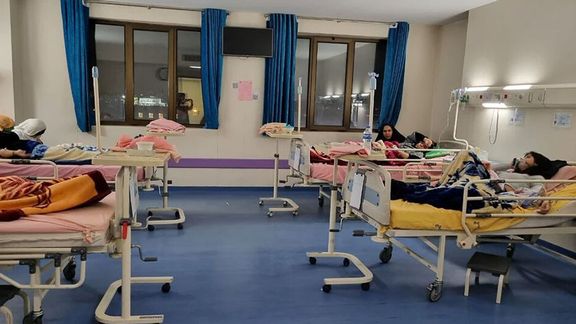
A popular dissident Twitter account, 1500tasvir, says preliminary results of tests done on clothing of poisoned schoolgirls in Iran suggests the use of a nerve agent.
In a series of tweets Wednesday, the group which is based abroad said samples of clothing of poisoned students it had received from Iran were tested by a group of experts who used the GC-MS technique to detect the gases absorbed by the clothing.
Tests indicated that the clothing items had been exposed to a set of molecular masses including those with a mass of 99 which suggested the presence of fluoromethyl phosphate, the report said, adding that fluoromethyl phosphate is the common agent among many highly toxic gases such as sarin, cyclosarin, soman.
The 1500tasvir report also said identifying the exact type of gas used in the attacks requires two high-resolution mass spectroscopy experiments on the molecular mass which the experts will carry out and urged families of victims to send more samples including hair samples.
The poisonings started in the religious city of Qom in central Iran November 30, spread throughout the country, and continued until the end of April, sending hundreds of students to hospitals and at least one case of death was reported.
The city of Qom with a population of over 1.2 million is home to most of Iran's religious seminaries and an important Shiite shrine.
Many ordinary Iranians have been suspicious of involvement of the regime itself, or religious extremists protected by the regime, calling the attacks “state terrorism”. Some argued that because teenagers and young people were playing a major role during the protests, and many young girls had removed their headscarves in protest, regime hardliners wanted to punish them.
Some of the victims reported falling ill after an aroma, resembling tangerines, or a putrid stench filled the air in their classrooms. Hundreds had to be hospitalized with some staying in hospital for up to a week due to the severeness of their symptoms including palpitation, headache, nausea, cough, sore throat, or temporary paralysis and weakness but most others were released within hours. In some cases, symptoms lasted for weeks.
In a statement on April 28, the intelligence ministry denied any indication that poisonous substances had caused the illness of students and said samples taken from the scene of the incidents examined by “the most reliable laboratories” in the country had not yielded any suspicious materials.
The ministry claimed illness of students was caused by stink bombs (stinkpots), pepper sprays, tear gas and similar substances used by students to disrupt classes and accused “foreign enemies” and media outside Iran, particularly those broadcasting in Persian, of using school poisoning incidents to ignite unrest because the Mahsa protests that started in mid-September had begun to subside.
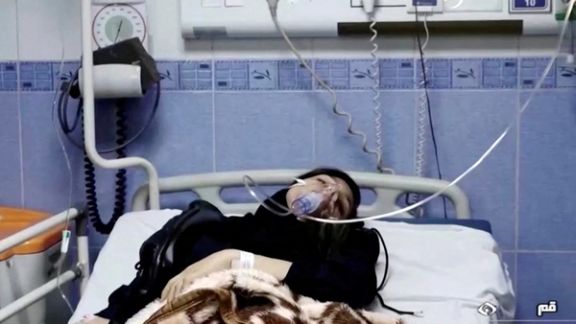
The ministry also mentioned spurious causes, such as gas fuel leak from vehicles and urban gas, smoke from trash burning outside schools, and mass psychogenic illness resulting from stress and said nearly all the students hospitalized following the incidents had recovered by simple treatments such as oxygen, saline and dextrose intravenous injections, and sedatives to treat anxiety.
During the height of the attacks, state media tried to downplay the seriousness of the incidents and authorities warned the local media to avoid reporting of the incidents.
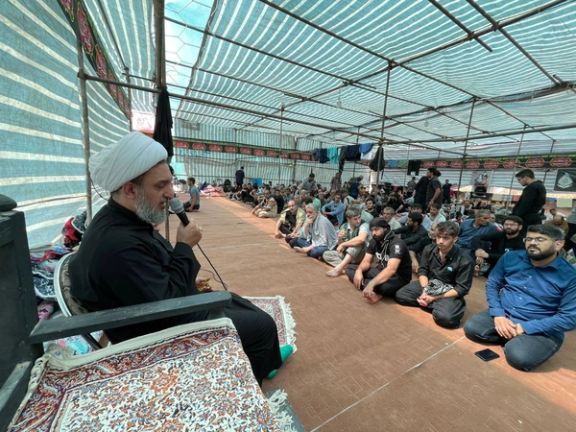
A senior Iranian cleric says around 50,000 of Iran's 75,000 mosques are closed, showing the declining numbers of Iranians attending.
Expressing regret over the low numbers engaged in worship, Mohammad Abolghassem Doulabi, who serves as the liaison between Ebrahim Raisi’s administration and the country’s seminaries, said on Thursday that the numbers are a "worrying admission” for a state built around the principles of Islam.
Doulabi, who is also a member of the Assembly of Experts – a deliberative body empowered to appoint the Supreme Leader – said the outcome of religion in Iran has led to people leaving religion.
Emphasizing the weakening of religiosity among society and in turn, a weakening legitimacy of a government ruling by religious diktat, he said: “When people look at the output of the religion, they decide to enter the religion or leave the religion," with reasons including “the humiliation of people in the name of religion," “falsification of religious concepts and teachings,” and “depriving people of a decent life and creating poverty in the name of religion.”
He made the remarks as growing numbers of Iranians of all ages are becoming weary of the regime's justification of Islam as the base of its brutal dictatorship, reflected by months of violent protest since September in the wake of the death in morality policy custody of Mahsa Amini, arrested for the inappropriate use of her hijab.